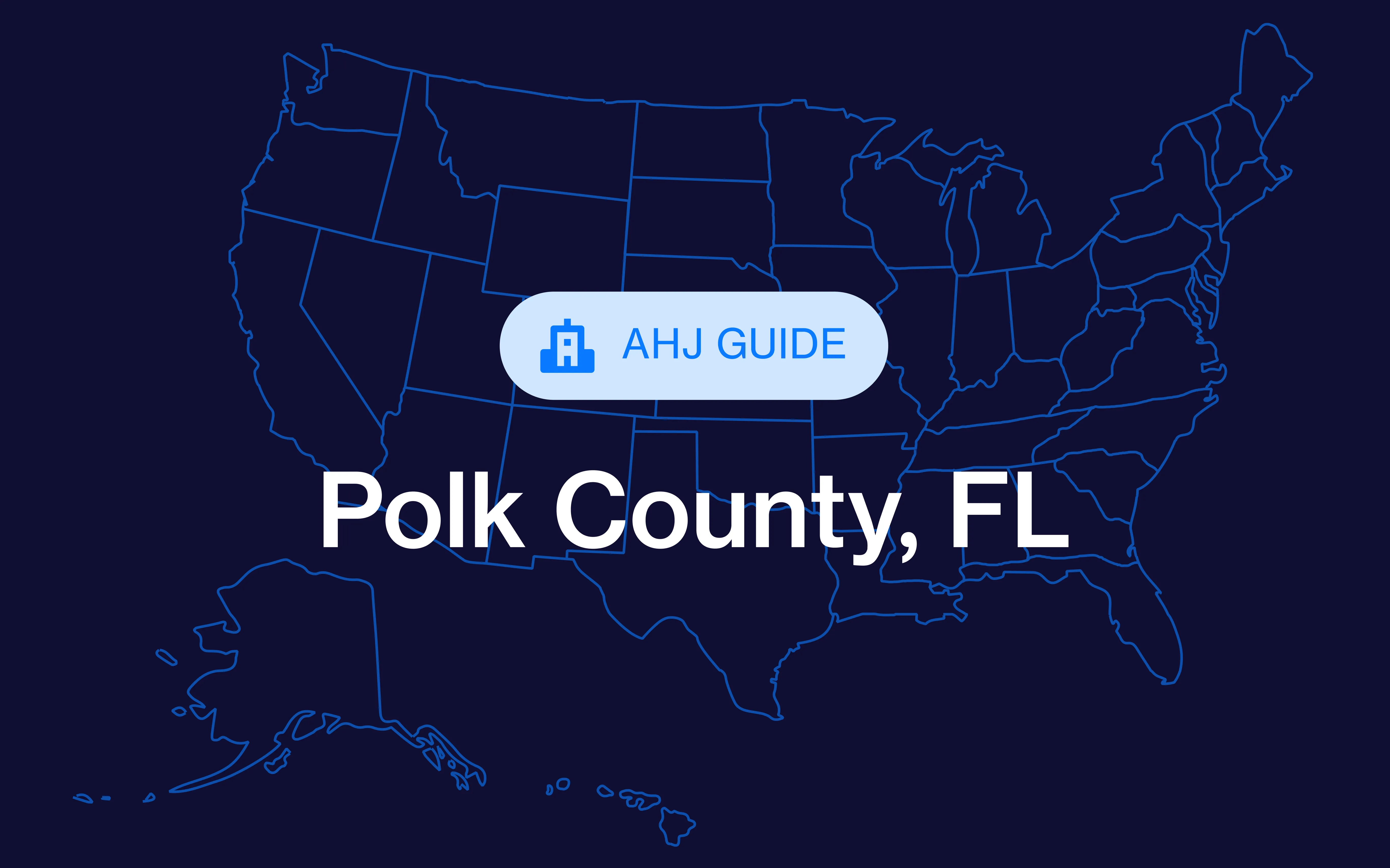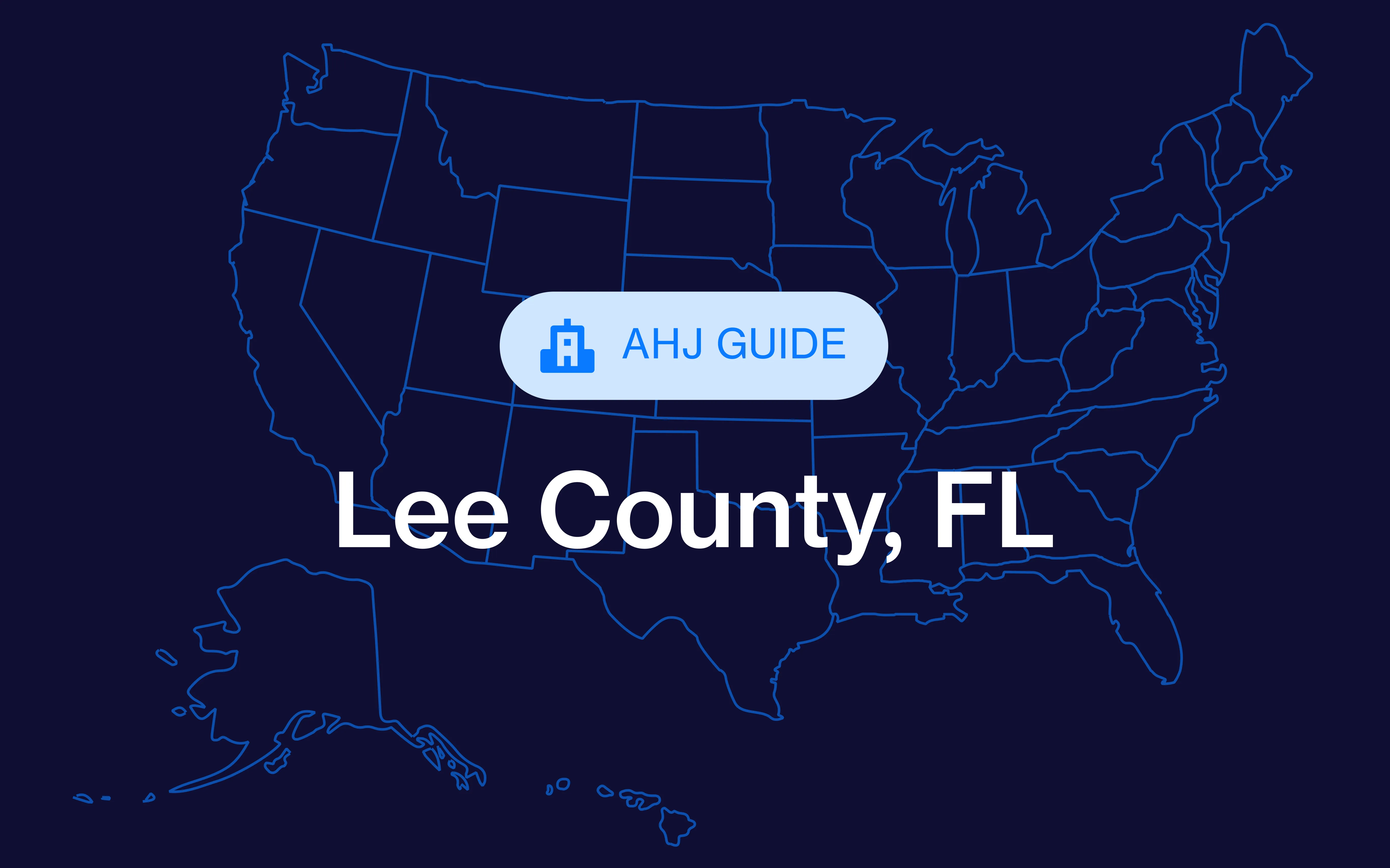As one of South Carolina's most regulated coastal communities, Hilton Head requires strict compliance with floodplain management, hurricane codes, and environmental protection standards. Every project, from oceanfront renovations to new commercial developments, must be designed to withstand coastal conditions and meet local permitting requirements.
Understanding the town’s process before you start helps you avoid costly delays and approval setbacks. This guide breaks down everything you need to know about Hilton Head building permits, including which projects require one, how to apply, what it costs, and how long approvals typically take.
Simplify permitting in Hilton Head with PermitFlow. Learn how.
What requires a building permit in Hilton Head Island?
The Town of Hilton Head Island Building Division requires permits for most residential, commercial, and trade-related construction projects. Permits ensure compliance with local building codes, safety standards, and zoning regulations.
Common projects that require a permit:
- New buildings, additions, and most alterations/repairs to any structure (including re-roofing, siding, interior remodels that change systems/structure)
- Trade work: most electrical, plumbing, mechanical/fuel-gas installations, replacements, or alterations (beyond “ordinary repairs”)
- Demolition, moving, or change of occupancy/use of a building or structure
- Projects in flood zones or Special Flood Hazard Areas (permits and flood compliance are required even for improvements that might otherwise be minor)
- Any work not listed as exempt in the state code’s §105.2 “Work Exempt from Permit.”
What doesn’t require a permit in Hilton Head?
Some small-scale or cosmetic projects do not require a permit, such as:
- One-story detached accessory structures (tool/storage sheds, playhouses, similar) not exceeding 120 sq ft, depending on code chapter used (IRC vs IBC), and not in F-1/H occupancies. Local zoning may still require approval
- Fences (unless used as a pool barrier or required for pedestrian safety) and concrete/masonry walls <7 ft
- Retaining walls supporting <4 ft of unbalanced fill and not supporting a surcharge or impounding Class I–III-A liquids
- Small pools with less than 24 in deep
- Tents/air-supported structures covering <900 sq ft with <50 occupants
To get a full list of projects that do and don't require a building permit, refer to the 2021 South Carolina Building Code page.
Hilton Head building permit cost
Hilton Head building permit costs are based on the project’s valuation and type (residential, commercial, trade). Below is a general overview of what to expect.
Residential building permit fees
Commercial building permit fees
Additional fees
For more information, view the town’s planning & development fees and building construction fees pages.
How long do building permits last in Hilton Head?
Building permits in Hilton Head Island are valid for 6 months from the date of issuance. If work pauses for more than 6 months, the permit may expire and require reapplication. To get the extension, submit your request in writing and specify the reason why the project was delayed.
Hilton Head trade permits
Plumbing permits
Required for new systems, water line relocations, fixture replacements that modify piping, and water heaters.
Electrical permits
Covers panel upgrades, rewiring, service extensions, EV chargers, and solar equipment.
HVAC permits
Permits are needed for all heating, cooling, and ventilation installations or replacements.
Roofing, pool, and specialty permits
Specialty permits cover work such as re-roofing, swimming pools, signage, and fences.
For more information, view the town’s planning & development fees and building construction fees pages.
Simplify permitting with PermitFlow
PermitFlow makes it fast and easy to pull permits in Hilton Head and beyond. Let’s get your permits approved — learn more →
How to get a building permit in Hilton Head
Step 1: Prepare your submittals
Before applying for a building permit, collect the following documents:
- Hilton Head building permit application
- Payment of Applicable Fees
- Affidavit of Owners' Consent
- HOA/POA Approval Letter (If exterior)
- HVAC Manuals J, S & D (If applicable)
- Window and Door DP Ratings Sheet (If applicable)
- 1 Complete set of building plans, to scale, (hard copy) and 1 digital copy
Note: Use the building permit checklists to get more information specific to your case.
Step 2: Submit your application
Use the Hilton Head permit portal to start your application. You can create an account and upload documents directly online. You may also submit a PDF by email or apply in person at Town Hall.
- Email: cdic@hiltonheadislandsc.gov
- In person: 1 Town Center Court, Hilton Head Island, SC 29928
Step 3: Plan review
Plans are reviewed within 20 business days of a complete application. The average initial review is about ~9-10 business days. You’ll be told either that your permit is ready or that corrections are needed.
Step 4: Pay fees and receive permit
You can pay invoices online through the CSS portal. The permit is issued once all reviews are approved and all fees are paid (and any outstanding items are resolved).
Step 5: Schedule inspections and begin work
Schedule inspections via the CSS portal or by calling 843-341-4757. Requests made by 3 pm are scheduled for the next business day when possible (the Town warns next-day isn’t always guaranteed due to volume). You’ll receive a list of required inspections with the permit; finals/CO come after all required inspections and paperwork are complete.
Hilton Head permitting resources
- Town of Hilton Head Island
- Address: 1 Town Center Court, Hilton Head Island, SC 29928
- Email: cdic@hiltonheadislandsc.gov
- Phone: (843) 341-4757
- CSS portal
- Hours: Mon–Fri, 8 AM – 4:30 PM
- Hilton Head building permit application
- Flood hazard guide
- Forms & applications
- Building permits
- 2021 South Carolina Building Code
- Fees:
Simplify Hilton Head permitting with PermitFlow
Navigating Hilton Head’s coastal permitting process takes time, patience, and precision. Between flood zone compliance, hurricane safety standards, and environmental regulations, even experienced builders can face setbacks. PermitFlow streamlines it all so you can spend less time managing paperwork and more time building.
Our permit management software is powered by AI to automatically oversee every step of the permitting process. Use PermitFlow to prepare, submit, and track your permits in Hilton Head and beyond from start to finish.
Why builders trust PermitFlow:
- Local expertise: Our team understands Hilton Head’s floodplain requirements, hurricane codes, and Lowcountry building standards, helping your applications pass review without unnecessary revisions.
- Centralized visibility: Manage every permit across every project from one intuitive dashboard.
- Faster approvals: We get your submittals right the first time, cutting rework and keeping coastal projects on schedule.
Keep your Hilton Head projects on schedule. Talk to our team today and see how PermitFlow simplifies permitting from start to finish.








